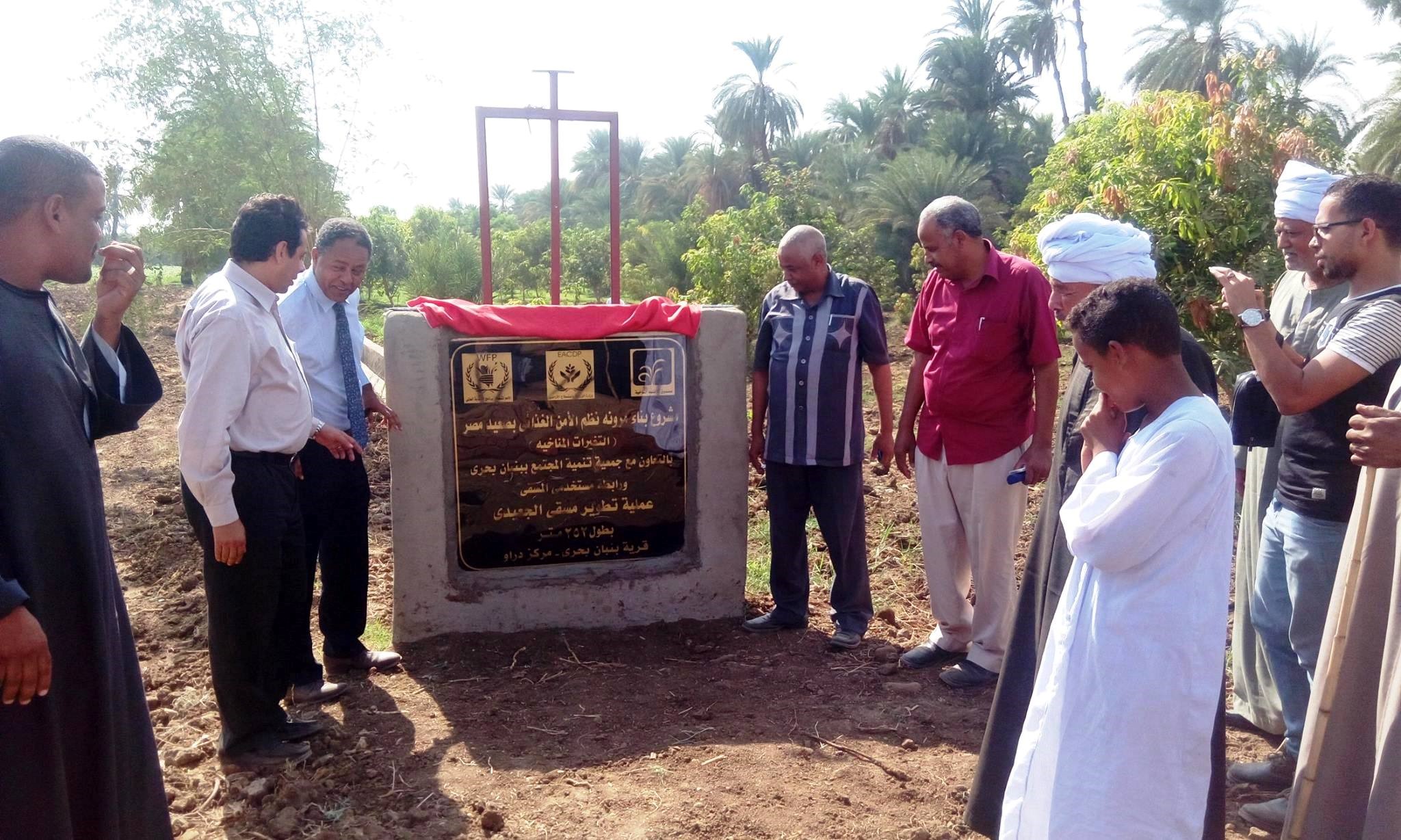Beneficiary Stories
Egypt: Stories from the Field
More than 90% of Egypt is desert and the agricultural land base totals about 3.5 million hectares — just 3.5% of the total land area. The project “Building resilient food security systems to benefit the Southern Egypt region”takes an integrated approach to adaptation and it has engaged stakeholders across the country.
Among its components, it builds adaptive capacity at national and community levels to provide food-insecure people with the knowledge, skills and tools to build their own climate resilience. It also offers training to key groups, and established climate information centers in each village.
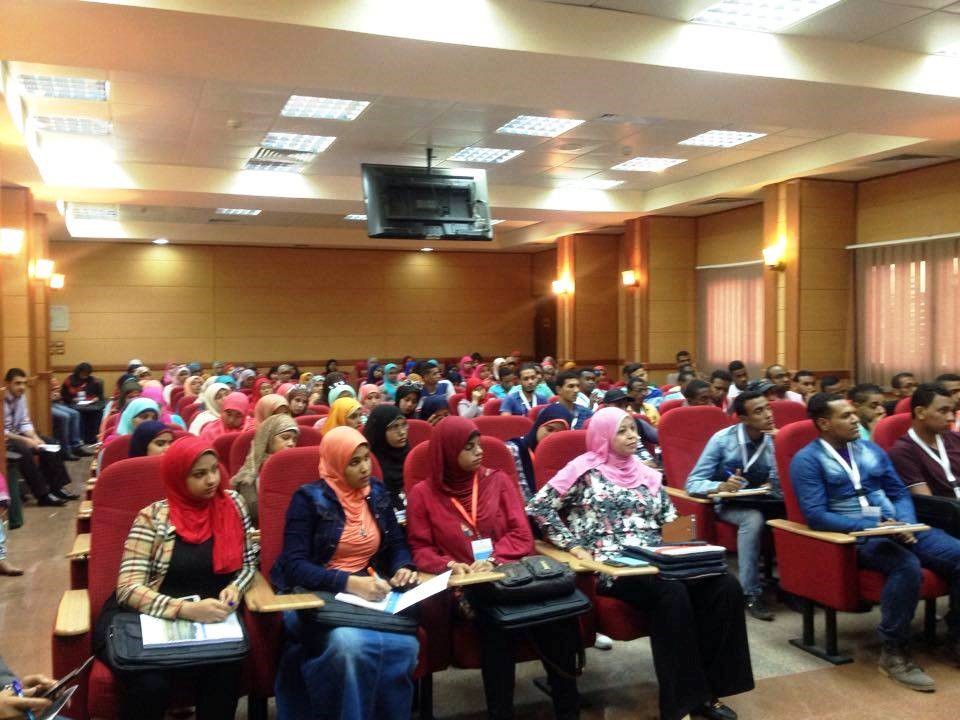
A group of agriculture students at Aswan University gather at a climate information center to learn adaptation techniques that can reduce impacts of climate change. Photo: Eng. Amr Abdelhameed
Close collaboration has helped ensure learning and replication of best practices and skills development. It has also promoted adoption of new techniques, as well as rescheduling of irrigation, use of heat-tolerant crop varieties and changing of sowing dates in wheat production.
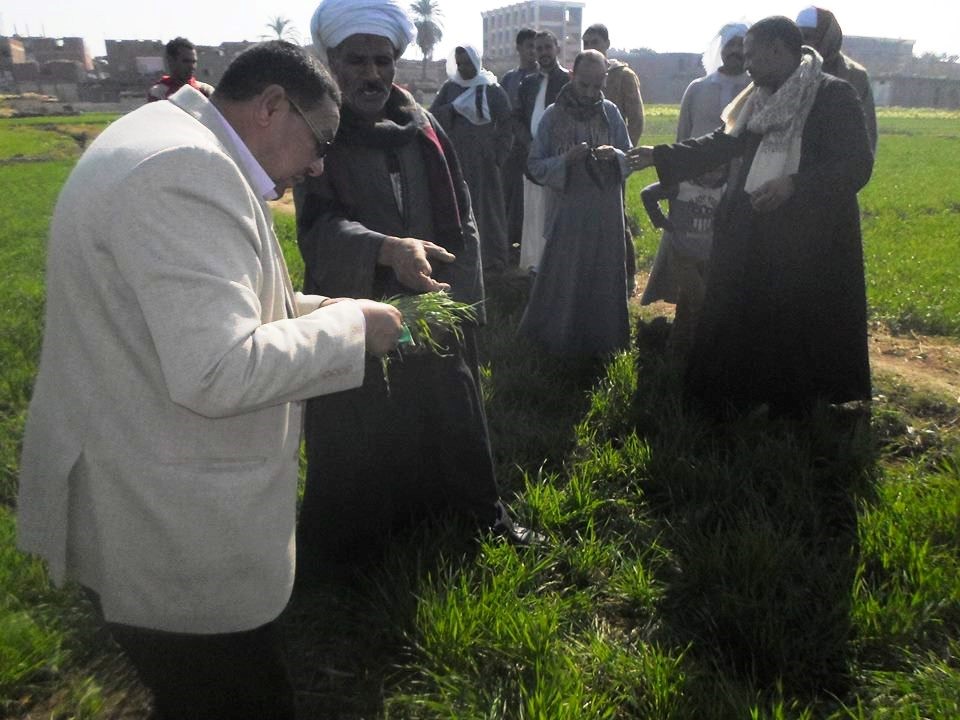
Field training session in Nazza Elbaharia, Gehina district, Soha governorate. Photo: Eng. Hossam Anwar
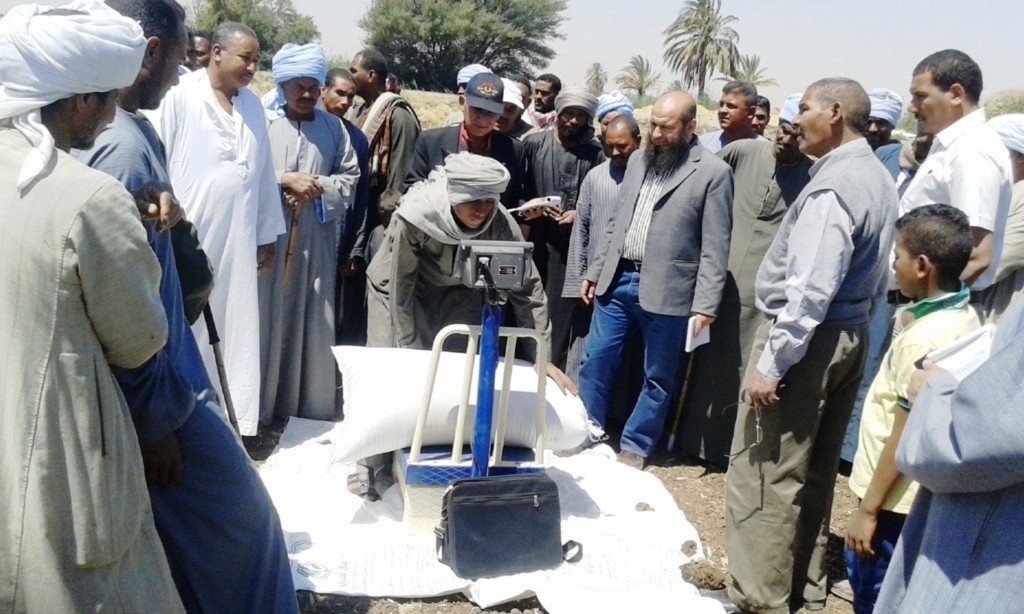
Estimation of wheat yield from the project sites in Negoe’ Kebly, Esna district of Luxor governorate. Photo: courtesy of Mr. Mohamed Mahdy
Through the “Building resilient food security systems to benefit the Southern Egypt region” project, communities now plan the type of crops and the sowing and harvesting periods based on climate information. Early adopters and opinion formers were the first to share their success stories with other community members, thus leading to scale-up and replication of activities and ideas.
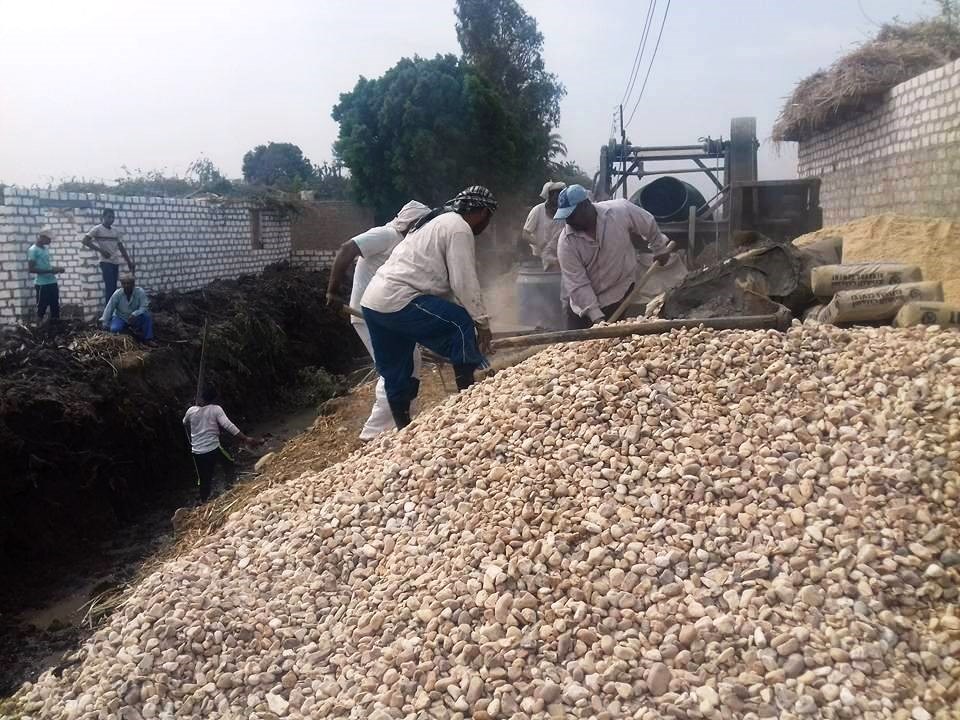
Workers are improving Abu Abed Mesqa in Maharza, Abu Tesht district, Qena governorate. Photo: Mrs. Eman Abderehim
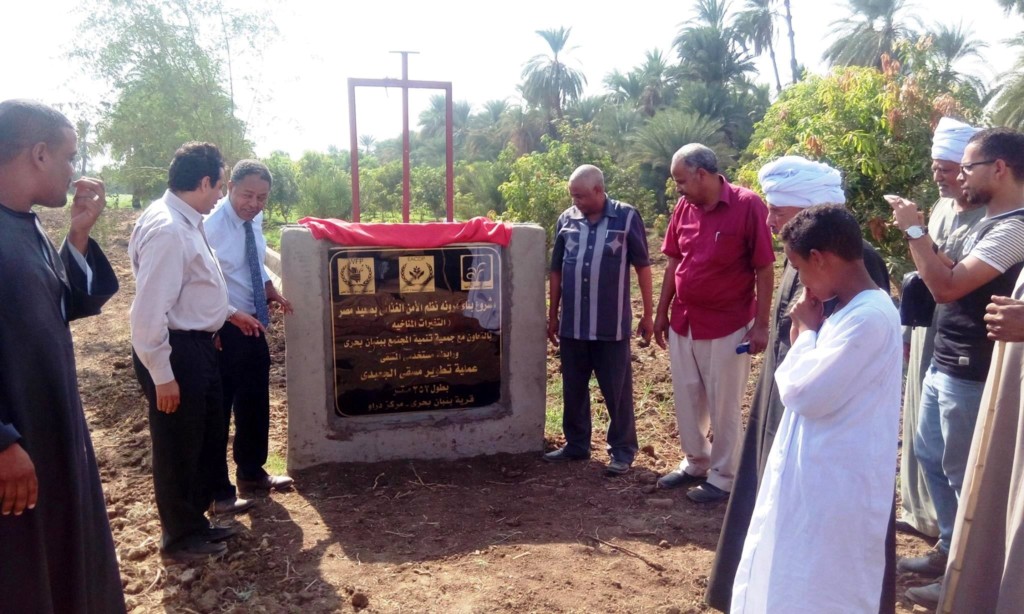
A monument was also unveiled to commemorate improvement of Geady Mesqa in Benban Bahary, Daraw district, Aswan governorate. Photo: Mrs. Amaal Mahmoud
The project requires changing centuries-old customs and livelihoods. As part of this process, the project has incorporated local cultures, traditions and norms to communicate messages about climate change adaptation.
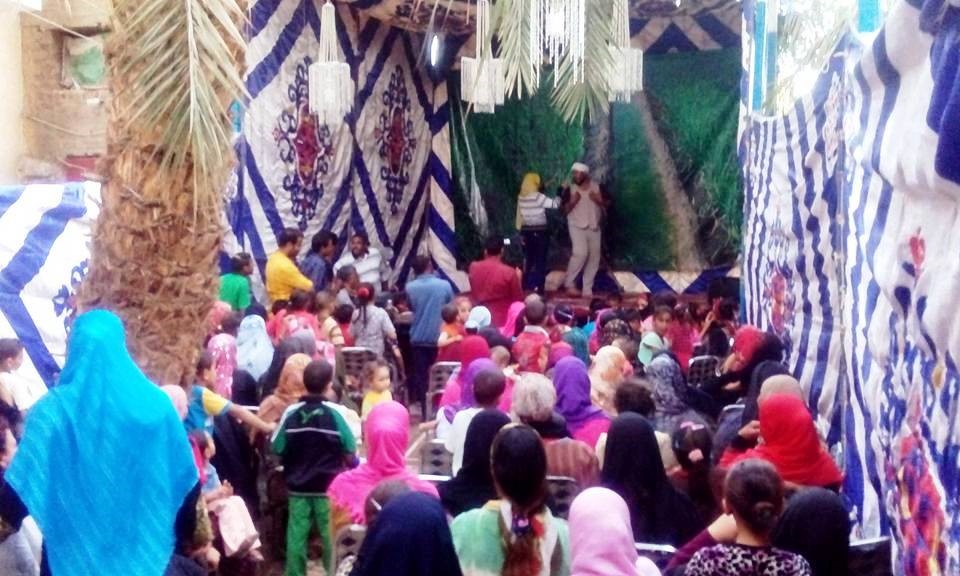
Comic play entitled “Mesqa improvement” taking place in Elsawalem, Tahta district in Sohag governorate of Egypt. Such performances are key to raise awareness of local communities. Photo: Mr. Mohamed Ali



